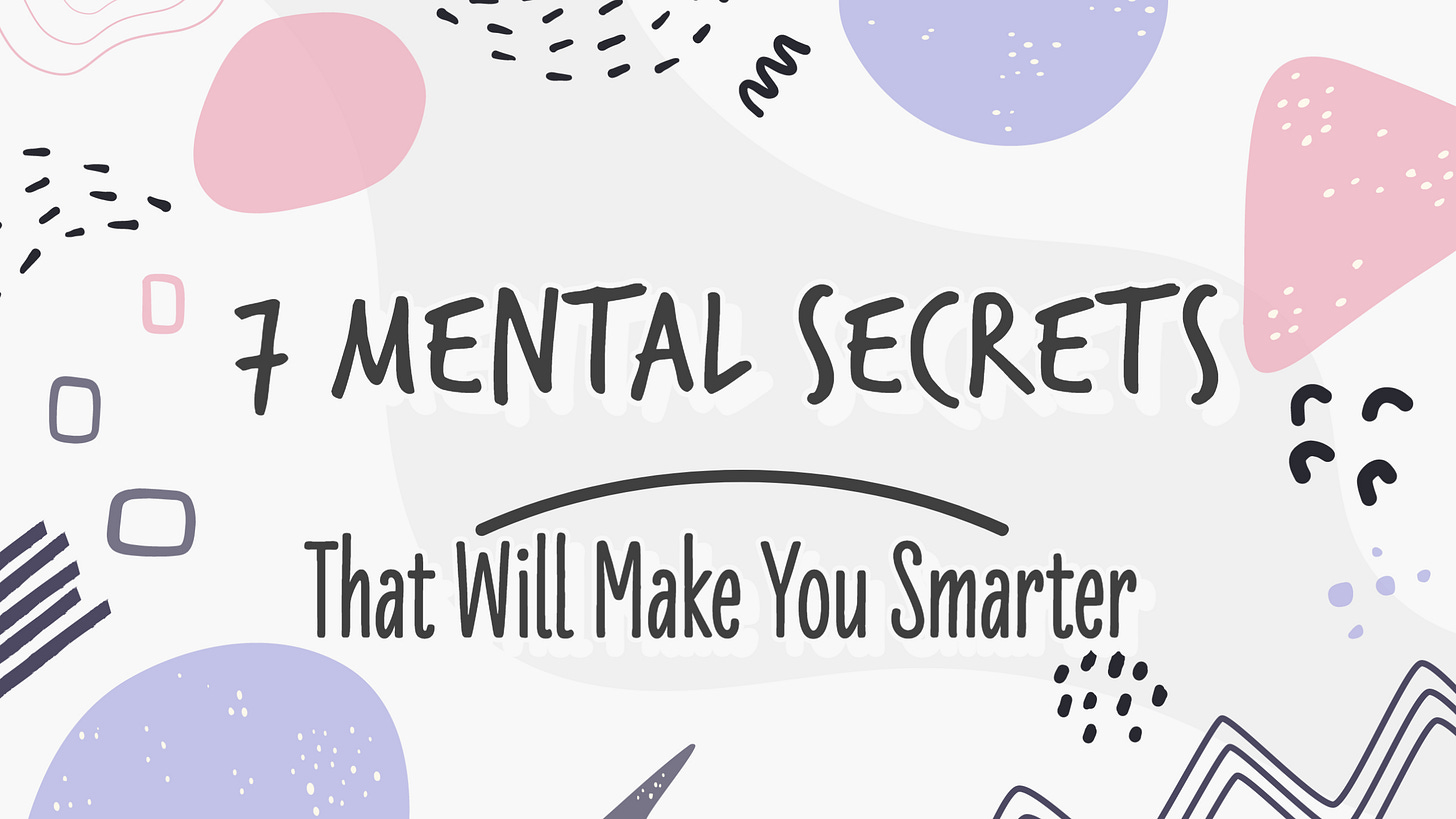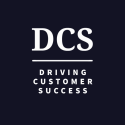☕️ 7 Mental Secrets That Will Make You Smarter Than 99% of Your Peers
(5-min read)
Welcome to the weekly Customer Success Café newsletter!
33 new members have joined us since last Sunday, and I’m thrilled to announce that we just hit 1.000 top talented CS pros who subscribed to level up their skills every single week.
What a massive milestone 🎉🎉🎉
I can’t thank you enough for your trust and confidence!
If you are not subscribed yet, sign up now to get the upcoming edition to your inbox and get prepped up for the week ahead!

The famous sales trainer Zig Ziglar used to say:
People buy on emotion and justify with logic.
Why?
Because he experienced firsthand that we were constantly exposed to a few mental biases in the way we interpret things around us.
Indeed.
Our attention span is limited.
And we tend to take shortcuts based on the information we believe to be true to make quick judgments.
But this comes with a massive downside:
You’re often being influenced or manipulated by the information you see unless you zoom out and take full control of your actions.
So, here are 7 mental secrets you need to be aware of to make smarter decisions and drive massive success with your customers.
1) Confirmation Bias
We love to hear things that confirm our own beliefs while we intentionally dismiss the information we don’t like.
This is why when you want to buy something, you look for customer testimonials, reviews, or survey results to confirm your choice, feel great about it and avoid any future remorse.
So, next time you discuss with your customers, provide them with more information that will help them confirm they’ve made the right decision!
2) Anchoring Effect
We heavily rely on the first piece of information we see as if we were caught in a “relativity trap”.
It’s about making customers focus on a single aspect of your product while you exclude all the other characteristics.
For example, if you’re first presented with a product that costs $49, the anchor, and then see a similar product for $19, you’ll think the first one is too expensive and is not worth the price.
But if I told you that for $49, you get the product AND all the other services the cheaper offer doesn’t provide, the higher price appears reasonable all of the sudden.
This is a technique companies often use to make you compare benefits and not just the price tag.
So, ensure you anchor your customers to your product’s business value and impact rather than discussing its price or features.
3) Permission Structure
What do you think prevents most people from changing their minds?
It’s often the fear of looking stupid!
Telling someone they are wrong is a guarantee they’ll stick to their beliefs and not change a single dime!
But most people can change their beliefs or behaviors if you simply make them feel good about it.
One way you can influence your customers to make a change is to give them examples of other customers who were in a similar position a few months ago.
In doing so, they’ll be able to relate to the change and visualize the transformation they can drive themselves as well.
So, just show them how these other customers succeeded based on the new information you provide.
4) Self-Serving Bias
Most people believe their failures are due to external circumstances and that all of their successes are well deserved.
For example, you’d say you worked hard to win this beautiful achievement award, wouldn’t you?
But you’ll hardly admit you failed to start an important meeting on time because you planned your schedule poorly.
And with customers, most people have similar behavior.
For instance, you’d say you implemented the right strategy but the project was delayed due to some approval processes which took too long to complete.
Simply said, stop blaming external forces for your failures.
Just own them and everyone around you including your customers will highly appreciate it!
5) Bandwagon Effect
We tend to imitate the buying choices of others.
Our brain often concludes that something must be desirable because other people want it as well.
And the more people adopt it, the more we believe we should as well.
This is where you can show your customers how others are using your products or services and how happy they are in doing so.
Chances are that your customers will want to jump on the bandwagon to achieve a similar outcome!
6) Ikea Effect
Have you ever heard about this popular bias?
We attribute more value to products we’ve been partially involved in building them.
This is why companies use this effect to let their customers make some levels of customization.
Like this table you spent an hour putting together, you feel proud once you finish it, right?
So, involve your customers in your projects and invite them to take action as much as you can.
This will help you ensure that success is shared and celebrated altogether!
7) Loss Aversion
And the last one for today: we fear losing more than winning.
This mental bias is perfectly illustrated in Chris Voss’s book “Never Split The Difference” which I’d highly recommend you to read.
For example, if you had to choose between chances of losing $100 bucks or 95% of winning $150 instead, you’d most likely prefer staying conservative and not losing the money, right?
In SaaS, it usually translates into acquiring users with a free trial offer.
Once they are in and enjoy the basic functionalities of your products or services, they will prefer to become a paying customer instead of losing access to your platform.
It’s therefore essential to ensure your customers visualize the business impact of losing what they already have.
You can then introduce your transition plan towards this destination where customers can relax and enjoy the results of massive success!
So, remember to leverage your customers’ fear of losing that will help you deliver even more on your promise.
And that’s it!
These are 7 mental secrets you should be aware of that will make you act smarter with your customers and get you ahead:
- Confirmation Bias
- Anchoring Effect
- Permission Structure
- Self-serving Bias
- Bandwagon Effect
- Ikea Effect
- Loss Aversion
But there are more of these mental gems which I’ll be covering in the upcoming editions.
P.S. are you looking for a career change to transition into Customer Success? check out my book to learn more about what it takes to become a great CSM and hit the ground running!
CS Café Hiring Zone
I’m personally curating the most unique jobs I’ve come across or have been made aware of this week in Customer Success.
P.s. Let me know if you want exposure to the opportunities at your company and I’ll include them in my newsletter.
Today’s Featured Opportunities
EMEA
- Customer Success Manager, BazaarVoice (Germany, Munich)
- Customer Success Manager, Cloudinary (UK, London)
- Customer Onboarding Manager, Userlane (Germany, Remote)
- Customer Success Manager, GitLab (France, Remote)
US
- Customer Success Manager Team Lead, Cloudinary (US)
- Director, Customer Success, Catalyst (New York, Remote)
- Sr Manager, CS Ops, GitLab (US, Remote)
LATAM
- Customer Success Director, Backbase (Mexico)
APAC
- Manager, Customer Success, FreshWorks (India)
- Head of Customer Success, Cloudflare (Japan)
- Sr Manager, Enterprise Customer Success, Miro (Australia)
Thank you!
If you are enjoying my newsletter, the best favor you could do for me is to share it with your network and just say a few nice words online.
Have a great week ahead!
And as always until next Sunday, take care friends!
Hakan.
About You
I’d love to connect and learn more about you!
Please feel free to reach out either by email, on social media, or by clicking the thumbs up below for feedback.
Note: I never disclose private messages publicly without asking you for permission first.
Let’s connect!
Twitter: follow me @DrivingCS – I tweet daily.
Instagram: @drivingcs
Linkedin: let’s connect!
The Customer Success Café Podcast
Customer Success fundamental skills and best practices to get ahead in 2022 and beyond!
Top CS news from Silicon Valley to Paris and beyond, daily.

Hakan Ozturk
Founder, theCScafe.com, #1 Weekly Customer Success Newsletter
Hakan Ozturk is a Paris-based Customer Success leader with over 15 years of experience in the computer software industry. Passionate about driving growth and delivering value to strategic customers, Hakan has established himself as a trusted industry expert. As the Founder of The Customer Success Café Newsletter and TopCSjobs.com, Hakan provides valuable industry insights and daily-updated job opportunities worldwide in the field of Customer Success. Connect with Hakan to boost your career in CS and your company’s potential for massive growth.

Leave a Reply